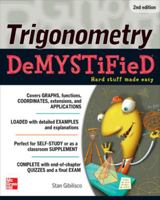Delusional Management: What Were They Thinking?
Select Format
Select Condition 
You Might Also Enjoy
Book Overview
High tech is never boring. Your boss confesses to a magazine editor after having three martinis for lunch. The bomb squad shows up after a suspicious package arrives at the office. Exiting your building after checking on a false alarm you find 3 cops aiming pistols at you. You get marooned in Bhopal, India with the country under martial law. A visitor tries to recruit you as a spy for the CIA. Can all that happen to one guy running a small high-tech company? You bet it can. And lots more besides. Fifty years in the high-tech business means there are lots of stories to tell. Dumb things you see happening all around you and quite a few you get involved in yourself make for interesting, and sometimes amusing, stories. These are some of those stories, written to amuse you and educate you and maybe warn you about what can happen.Like you, I've read my share of business books and articles. Most are written to tell you how the author believes is the right way you should conduct your business based on their success. The problem, as I see it, is most of us learn not from the good examples but from the bad ones. Mostly bad examples we've been personally involved in. Like me; I've seen a lot of bad examples. That's what most of this book is all about. I'm not going to tell you what to do, I'm going to tell you how I learned what not to do. It's up to you to take it from there.
Format:Paperback
Language:English
ISBN:1791687709
ISBN13:9781791687700
Release Date:December 2018
Publisher:Independently Published
Length:208 Pages
Weight:0.49 lbs.
Dimensions:0.4" x 5.2" x 8.0"
More by Thomas F. Edgar
Customer Reviews
5 customer ratings | 5 reviews
There are currently no reviews. Be the first to review this work.










































